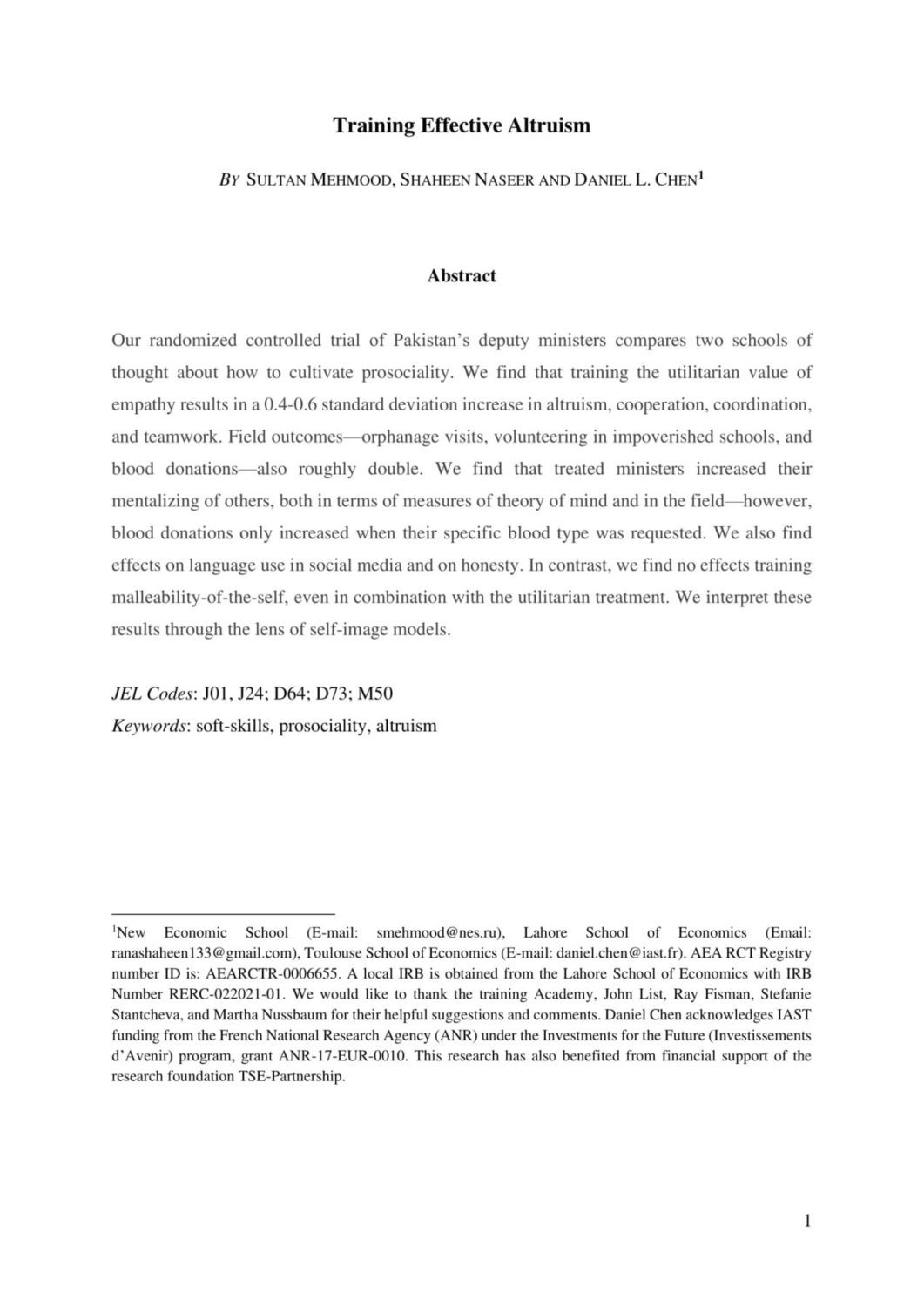Training effective altruism
Sultan Mehmood (New Economic School), Shaheen Naseer (Lahore School of Economics) and Daniel L. Chen (Toulouse School of Economics)
GPI Working Paper No. 7 - 2022, published in the Toulouse School of Economics Working Paper series
Our randomized controlled trial of Pakistan’s deputy ministers compares two schools of thought about how to cultivate prosociality. We find that training the utilitarian value of empathy results in a 0.4-0.6 standard deviation increase in altruism, cooperation, coordination, and teamwork. Field outcomes—orphanage visits, volunteering in impoverished schools, and blood donations—also roughly double. We find that treated ministers increased their mentalizing of others, both in terms of measures of theory of mind and in the field—however, blood donations only increased when their specific blood type was requested. We also find effects on language use in social media and on honesty. In contrast, we find no effects training malleability-of-the-self, even in combination with the utilitarian treatment. We interpret these results through the lens of self-image models.
Other working papers
Funding public projects: A case for the Nash product rule – Florian Brandl (Stanford University), Felix Brandt (Technische Universität München), Dominik Peters (University of Oxford), Christian Stricker (Technische Universität München) and Warut Suksompong (National University of Singapore)
We study a mechanism design problem where a community of agents wishes to fund public projects via voluntary monetary contributions by the community members. This serves as a model for public expenditure without an exogenously available budget, such as participatory budgeting or voluntary tax programs, as well as donor coordination when interpreting charities as public projects and donations as contributions. Our aim is to identify a mutually beneficial distribution of the individual contributions. …
Philosophical considerations relevant to valuing continued human survival: Conceptual Analysis, Population Axiology, and Decision Theory – Andreas Mogensen (Global Priorities Institute, University of Oxford)
Many think that human extinction would be a catastrophic tragedy, and that we ought to do more to reduce extinction risk. There is less agreement on exactly why. If some catastrophe were to kill everyone, that would obviously be horrific. Still, many think the deaths of billions of people don’t exhaust what would be so terrible about extinction. After all, we can be confident that billions of people are going to die – many horribly and before their time – if humanity does not go extinct. …
Longtermism in an Infinite World – Christian J. Tarsney (Population Wellbeing Initiative, University of Texas at Austin) and Hayden Wilkinson (Global Priorities Institute, University of Oxford)
The case for longtermism depends on the vast potential scale of the future. But that same vastness also threatens to undermine the case for longtermism: If the future contains infinite value, then many theories of value that support longtermism (e.g., risk-neutral total utilitarianism) seem to imply that no available action is better than any other. And some strategies for avoiding this conclusion (e.g., exponential time discounting) yield views that…

